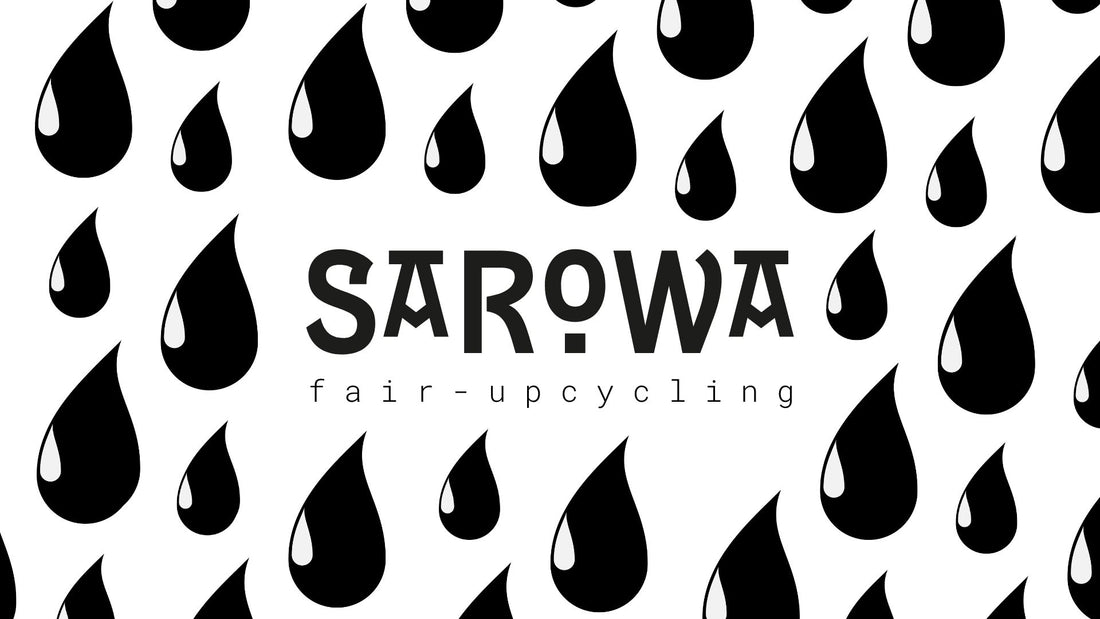Ever wondered what the name SAROWA means?
Behind the name is a Nigerian man, Ken Saro-Wiwa, who was firmly convinced of his opinion and courageously prepared to bear the consequences for his steadfastness. On November 10, 1995, he was hanged and died.
Kenule was born in 1941 to the Ogoni tribe in the oil-rich Niger Delta.
80% of Nigeria's oil was produced there with disastrous consequences for the environment and the people. Since 1958, natural habitats, water bodies, and agricultural lands of the Ogoni have been destroyed. The massive, ongoing pollution took away livelihoods and led to the deaths of thousands of people. More detailed information can be found in the book: "Flames of Hell" by Ken Saro- Wiwa.
As co-founder and chairman of the organization Movement for the Survival of the Ogoni People (MOSOP for short), Ken Saro-Wiwa attracted worldwide attention in 1995. He and eight other members of MOSOP were accused by Nigeria's military government of being responsible for the deaths of four Ogoni tribal elders. After a year of imprisonment and a public show trial in which, it later emerged, bribed witnesses testified, all were sentenced to death. Despite international protests, the death sentence was carried out. During his imprisonment he received the "Alternative Nobel Prize" Right Livelihood Award and the Goldman Environmental Prize.
Kenule Beeson Saro-Wiwa wanted to work through peaceful, non-violent demonstrations. The goals of MOSOP were political and cultural autonomy, rehabilitation of damaged areas, and sharing in oil profits.
At Sarowa, the products are made by people who receive fair wages. The products themselves are sewn from fabrics that would otherwise be disposed of as scraps in an environmentally damaging way. Nature is close to our hearts. Whenever I read through his life story I realize how much he has sacrificed for our nature and it motivates me daily.
Through the upcycling process of fabric scraps, we protect the environment and try to follow the example of Ken Saro Wiwa. Of course, we are not threatened as this activist became. Nevertheless we try to protect the environment from exploitation and destruction and work daily to improve this.
Benedikt

